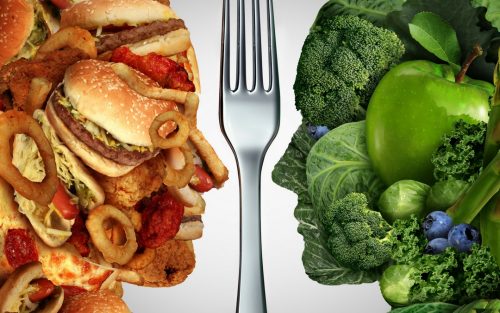
by Feeling Great | Mental Wellbeing
Mental Health Holistic Approach – 5 Things You Should Promise Yourself NOT To Do This Year
As the new year begins with lightning speed your mind fills with goals, aspirations, and plans — all designed to spur change and improve upon the person you were in the previous year.
A lesson well learned is to make sure you do all the above in a way that really honours you. So here are things you need to promise NOT to do this year.
Life is a journey, not a destination.” – Ralph Waldo Emerson
5 Mental Health Holistic Approach (Not to Do this Year)
1. I will NOT put unrealistic demands on myself.
This includes any type of rigid schedule, goals set for the purpose of pleasing anyone other than myself or harsh lifestyle or character modifications of any type. Remembering that we thrive in a flexible, creative environment and even if someone else succeeds in other ways, those are not my ways. We will instead strive for attainable and healthy changes that are manageable and designed to truly improve my life in my own unique way.
2. I will NOT be my own worst critic.
This year, ease up on your own opinion of yourself. Give myself a break. Do not beat yourself up for past mistakes or perceived current shortcomings. Do not compare myself to anyone else because you are uniquely you.
3. I will NOT treat myself with any less love and kindness than I would show to anyone else.
We can be very quick to forgive and typically strive to see the best in others. However, that generosity of spirit is often lost when we review our own life and actions. With the “You can do better” mantra. This year, work towards recognizing the wonderful things you bring to the table. Celebrate your contributions to the world and speak to myself with kindness when you fall short of my self-imposed expectations — just as you would do for my friends and family members.
4. I will NOT focus on negative thoughts.
Every day we are bombarded with news stories that could make the most steadfast optimist cringe. It’s easy to get caught up in a cycle of fear and negativity. But we can be a positive influence in the lives of others. We can radiate love and kindness and positivity designed to touch the hearts of those we encounter. By doing so, we just might make the world a slightly better place — and that’s enough.
5. I will NOT forget to have fun.
In a society where terms like success and accomplishment are used to identify someone’s worth, it’s easy to get caught up in a dust storm of busy-ness. It’s as if society has grown to believe that only by being constantly busy can we prove ourselves to be worthy, accomplished, successful.
Well, I’m going to discard that belief this year and work toward making space for the things I love. Striving to approach the day with a light heart and a good humour. Sure, you still have to work and earn money, but work should not define or control you.
Final Thoughts
This may be a hefty list to tackle all at once. I’ll add that do NOT expect miracles but allow time and practice to guide you to these goals. View it as a roadmap for a gentle, growth-centred journey to a happier you. So have an amazing year!
Here’s another information about holistic approach! The Holistic Approach to a Healthy Lifestyle and you can also read the Mood & Gut Connection and if you find this helpful, we love to hear from you. Book now for a healthy year and have more energy for the rest of the year!

by Feeling Great | Energy/Fatigue
Top 9 Immune Boosting Natural Remedies For Colds
Natural Remedies For Colds – Just of late I have been surrounded by so many people with colds – asking what can I do to get over this quickly?
A cold is really your body’s way of saying, “SLOW DOWN! I need a break!” So, slow down, take the day off and rest. You’ll body will thank you by recovering and rejuvenating itself and you’ll be back to your busy schedule in no time!
So here are some of the remedies out there. They are easy to do, affordable and minimal side effects.
(more…)

by Feeling Great | Body, Mental Wellbeing, Mind, Weight Loss
10 Things You Should Know About Your Microbiome
If you had to name one of the most groundbreaking medical discoveries, what would it be? As a health practitioner, my answer is clear—the microbiome.
This vast community of trillions of bacteria lives in your gut, mouth, lungs, nasal passages, skin, and even brain. While we’ve known about these bacteria for years, we now understand their crucial role in nearly every aspect of our health.
Here are 10 key facts about your microbiome and why it matters:
1. Your Body Has More Bacteria Than Cells
Believe it or not, bacteria outnumber your cells 9 to 1. Even more surprising, the genes in your microbiome outnumber your own DNA by 150 to 1!
2. Your Microbiome Controls Essential Functions
Friendly bacteria help:
- Digest food and absorb nutrients
- Regulate metabolism and appetite
- Boost immunity and fight infections
- Enhance mental sharpness and mood
- Support heart and bone health
Without them, your body struggles to function properly.
3. Not All Bacteria Are Bad—Many Are Your Allies
Bacteria often get a bad reputation, but most are beneficial. They help restore gut health, combat fatigue, ease anxiety, improve skin conditions, and even reduce pain.
4. A Healthy Microbiome Affects Weight Loss
Your gut bacteria influence digestion, metabolism, and cravings. Some bacteria encourage inflammation and sugar cravings, while others support weight loss. A balanced microbiome keeps you energized, lean, and strong.
5. Rebalancing Your Microbiome Helps Burn Fat
Scientific studies confirm that a well-balanced gut boosts metabolism and fat loss. This is something I’ve seen firsthand in my naturopathic practice—when patients improve gut health, weight loss follows naturally.
6. Your Microbiome Impacts Mental Health
Your gut and brain are connected. If your microbiome is imbalanced, it can lead to:
- Anxiety and depression
- Fatigue and brain fog
- Memory issues and mood swings
7. Stress Can Damage Your Gut in Just 24 Hours
Bacteria have short lifespans—about 20 minutes. That means a single day of stress can alter your gut balance drastically. However, you can restore it quickly with the right foods and probiotics.
8. Probiotics Help Restore Balance
Probiotics are live bacteria that replenish your gut. You can find them in:
- Supplements
- Fermented foods like yogurt, kefir, sauerkraut, and kimchi
9. Prebiotics Feed Your Good Bacteria
Prebiotics are fiber-rich foods that nourish healthy bacteria. Some top sources include:
- Asparagus, garlic, onions, leeks, carrots, and radishes
- Turmeric and cinnamon
10. The Future of Medicine Is Rooted in the Microbiome
Experts predict that gut health research will reshape modern medicine. The Mayo Clinic has even called microbiome science as important as genetics and germ theory.
Final Thoughts: Support Your Microbiome Today
Your microbiome is your hidden health powerhouse. By nourishing it with probiotics, prebiotics, and gut-friendly foods, you can improve digestion, boost energy, sharpen focus, and even enhance your mood.
Start prioritizing your gut health—your entire body will thank you!
Book Here if you need help with your microbiome? Fatigued, stressed, anxious, depressed, overweight, headaches, acne, eczema, colds, infections, joint and muscle pain….

by Feeling Great | Mental Wellbeing
Food and Emotions: Do You Turn to Food for Comfort?
Understanding Emotional Eating and How to Overcome It
Food and Emotions? Do emotions influence your eating habits? Many people reach for food when feeling stressed, anxious, or overwhelmed. It is a common challenge that often leads to frustration and guilt. The cycle can feel endless, but with the right approach, you can break free and build healthier habits.
Do you ever reach for snacks when feeling stressed, bored, or overwhelmed? Emotional eating is a common struggle that often leads to frustration and guilt. The cycle can feel endless, but the good news is that you can break free. By recognizing triggers and adopting healthier coping strategies, you can regain control of your eating habits.
Why Emotional Eating Happens
For many, the connection between food and emotions starts in childhood. Parents may use snacks as a way to comfort, distract, or reward. Over time, this creates an emotional link to eating. As an adult, you might crave certain comfort foods simply because they remind you of happy memories.
Signs of Emotional Eating
- Eating when feeling stressed, sad, or anxious
- Craving specific comfort foods, even when full
- Feeling out of control around food
- Using food as a reward or distraction
Food and Emotions – 4 Tips to Overcome Stress Eating
1. Identify Your Triggers to Emotional Eating
Keep a food and mood journal. Write down:
What you ate or craved
How you felt before eating
Your emotions after eating
Recognizing these patterns helps you make better choices.
2. Find Healthier Coping Strategies
Instead of turning to food, try:
Deep breathing to reduce stress
A short walk or stretching to reset
Calling a friend for support
3. Pause Before Eating
When cravings hit, wait five minutes. Distract yourself by:
Drinking water
Stepping outside
Doing a quick activity
Often, the urge will pass.
4. Build Healthy Lifestyle Habits
A strong body and balanced mind help reduce emotional eating. Focus on:
Regular exercise to manage stress
Quality sleep to support hormone balance
Meaningful social connections for emotional well-being
Final Thoughts: Take Control of Your Eating Habits
Emotional eating isn’t about willpower—it’s about awareness and balance. Small, mindful changes will help you develop a healthier relationship with food. Try these tips today and break free from the cycle for good!
If you want to read about how to Eliminate Stress, Read This. If you would like further information or help to formulate a diet plan which will reduce the emotions and urge to Emotional Eating BOOK HERE

by Feeling Great | Weight Loss
Intermittent Fasting – Why and How?
Intermittent fasting is a hot topic in the health and wellness world. You might even be tempted to dismiss it as just another trend. But before you do, consider this—I’ve seen incredible transformations in clients who struggled with weight loss, inflammation, high blood sugar, and poor liver function, despite making all the “right” lifestyle choices.
Fasting has been part of human history for thousands of years. Many cultures have practiced it for spiritual, survival, and health-related reasons. Today, however, we eat constantly—not just for nourishment but also for comfort, socializing, celebrations, and emotional relief.
Could taking a break from eating be the key to better health? Let’s explore what intermittent fasting is, how it works, and why it might be exactly what your body needs.
What Is Intermittent Fasting?
Intermittent fasting (IF) is not a diet—it’s an eating pattern that alternates between periods of eating and fasting. Rather than focusing on what you eat, IF focuses on when you eat.
During fasting periods, you give your digestive system a rest, allowing your body to focus on repair, detoxification, and fat burning. You can still drink water, herbal teas (like peppermint, chamomile, or lemongrass and ginger), and black coffee—just avoid anything with calories or sweeteners.
Why Intermittent Fasting Works
Your body is constantly processing food, which takes a lot of energy. Every time you eat, your insulin levels rise, making it difficult to burn stored fat for energy.
However, once you’ve been fasting for 8–12 hours, your insulin levels drop, and your body switches into fat-burning mode. This process, known as metabolic flexibility, allows you to use stored energy efficiently.
On a deeper level, fasting activates survival mechanisms. When food is scarce, your body repairs itself, removes damaged cells, and boosts longevity. It’s a natural process designed to keep you healthy and thriving.
Health Benefits of Intermittent Fasting
1. Weight Loss & Fat Burning
Many people struggle to lose weight even when they eat clean, exercise, and manage stress. If this sounds familiar, intermittent fasting could be the missing piece.
In my clinic, I’ve seen consistent and sustainable weight loss with the 16:8 method (fasting for 16 hours, eating within an 8-hour window).
Pro Tip: Exercising at the end of your fast—before eating—can accelerate fat loss and boost energy levels.
2. Gut Health & Digestion
Your gut works hard to process food. By giving it a break, you allow your body to focus on healing, detoxifying, and rebuilding.
Intermittent fasting also improves gut bacteria balance, reducing bloating, inflammation, and food cravings. Many people notice a reset in their appetite, making it easier to eat intuitively.
3. Blood Sugar & Insulin Sensitivity
If you struggle with blood sugar spikes, cravings, or energy crashes, fasting can stabilize glucose levels and improve insulin sensitivity.
This makes IF highly beneficial for people with prediabetes, Type 2 diabetes, or fatty liver disease.
4. Reduces Inflammation & Supports Healing
Chronic inflammation is linked to aging, heart disease, cancer, and autoimmune disorders.
Fasting activates your body’s repair mechanisms, reducing oxidative stress and lowering inflammation throughout your body.
5. Boosts Longevity & Anti-Aging
Studies on long-living populations show that eating less may extend lifespan. Many centenarians report eating one meal a day or having periods of fasting throughout life.
There’s truth in the old saying:
“The less you eat, the longer you live.”
6. Brain Health & Mental Clarity
Fasting triggers the production of brain-protecting molecules, helping to prevent memory loss, improve focus, and slow neurodegenerative diseases like Alzheimer’s.
Many people also experience enhanced mental clarity, productivity, and mood stability.
7. Heart Health & Disease Prevention
Intermittent fasting improves key heart health markers, including:
- Blood sugar regulation
- Lower blood pressure
- Reduced inflammation
- Improved cholesterol balance
If you have a family history of heart disease, fasting could be a powerful prevention tool.
Ways to Practice Intermittent Fasting
There are several fasting methods, so you can choose one that fits your lifestyle.
1. 16:8 Method (Most Popular & Beginner-Friendly)
- Fast for 16 hours, eat within an 8-hour window.
- Example: Eat from 11 AM – 7 PM, fast from 7 PM – 11 AM.
- You can adjust your window based on your schedule.
This method is flexible—you can do it daily, on weekdays, or a few times per week.
2. 5:2 Diet (Whole Food Fasting)
- Eat normally for 5 days.
- On 2 non-consecutive days, limit calories to 600 (men) or 500 (women).
- Focus on nutrient-dense, whole foods like vegetables, nuts, and lean proteins.
This approach works well for people who prefer structure but don’t want to fast daily.
3. 24-Hour Fast (Once or Twice a Week)
- Fast from dinner to dinner (24 hours).
- Example: Eat at 7 PM, then fast until 7 PM the next day.
- Ideal for experienced fasters looking for a deeper reset.
This method is great for reducing inflammation and enhancing fat-burning and cellular repair.
Tips for a Successful Fasting Experience
- Stay Hydrated – Drink plenty of water, herbal teas, and black coffee.
- Start Slowly – Begin with 12-hour fasts and increase gradually.
- Listen to Your Body – Some hunger is normal, but extreme fatigue or dizziness means you may need to adjust.
- Be Patient – Your body adapts over time. Stick with it, and you’ll notice changes in energy, appetite, and mood.
- Eat Whole Foods – Focus on nutrient-dense, unprocessed meals when breaking your fast.
Is Intermittent Fasting Right for You?
Intermittent fasting isn’t one-size-fits-all, but it’s definitely worth trying. Many people experience:
- Steady weight loss
- Better digestion & gut health
- Balanced energy & improved mood
- Sharper mental focus
- Long-term disease prevention
Have you tried intermittent fasting? What results have you seen? Share your experience in the comments!
Need Help Getting Started?
If you’re curious but not sure where to begin, let’s create a plan tailored to your needs. Whether you’re looking to lose weight, improve digestion, or boost your overall health, intermittent fasting could be your game-changer.
Interested about the connection of Food and Emotions? You can read more about it and share with us your thoughts!
Book a consultation today! Book Here! Let’s find the best approach for you.








